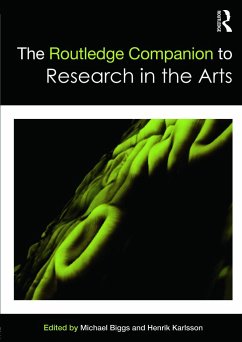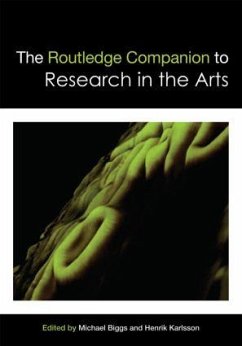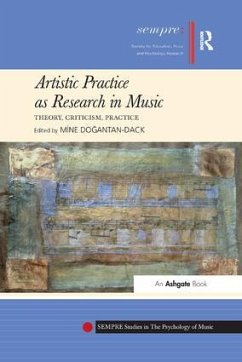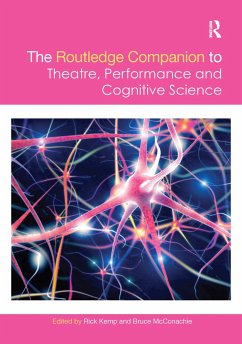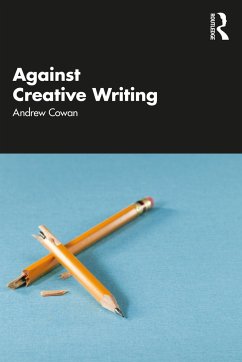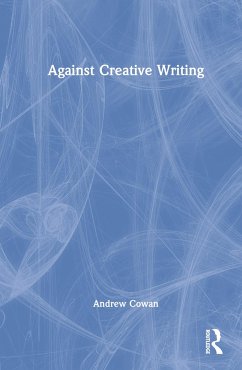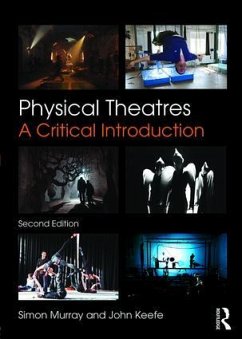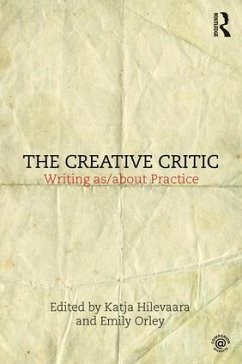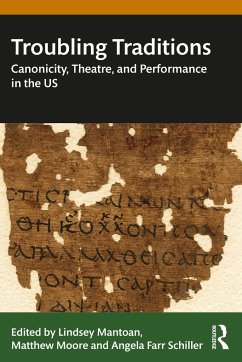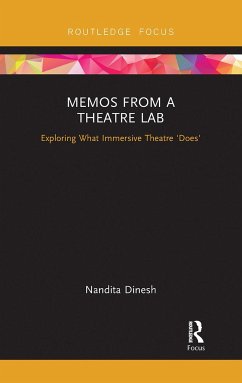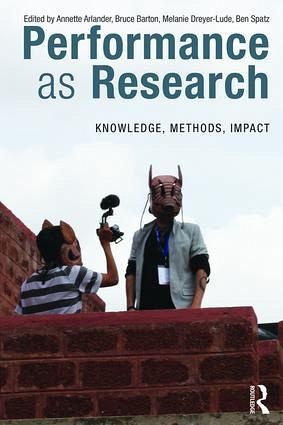
Performance as Research
Knowledge, methods, impact
Herausgegeben: Arlander, Annette; Barton, Bruce; Dreyer-Lude, Melanie; Spatz, Ben
Versandkostenfrei!
Versandfertig in 6-10 Tagen
42,99 €
inkl. MwSt.
Weitere Ausgaben:

PAYBACK Punkte
21 °P sammeln!
Performance as Research (PAR) is characterised by an extraordinary elasticity and interdisciplinary drive. Performance as Research: Knowledge, Methods, Impact celebrates this energy, bringing together chapters from a wide range of disciplines and eight different countries. This volume focuses explicitly on three critical, often contentious themes that run through much discussion of PaR as a discipline:Knowledge - the areas and manners in which performance can generate knowledgeMethods - methods and methodologies for approaching performance as researchImpact - a broad understanding of the impac...
Performance as Research (PAR) is characterised by an extraordinary elasticity and interdisciplinary drive. Performance as Research: Knowledge, Methods, Impact celebrates this energy, bringing together chapters from a wide range of disciplines and eight different countries. This volume focuses explicitly on three critical, often contentious themes that run through much discussion of PaR as a discipline:
Knowledge - the areas and manners in which performance can generate knowledge
Methods - methods and methodologies for approaching performance as research
Impact - a broad understanding of the impact of this form of research
These themes are framed by four essays from the book's editors, contextualising their interrelated conversations, teasing out common threads, and exploring the new questions that the contributions pose to the field of performance. As both an intervention into and extension of current debates, this is a vital collection for any reader concerned with the value and legitimacy of performance as research.
Knowledge - the areas and manners in which performance can generate knowledge
Methods - methods and methodologies for approaching performance as research
Impact - a broad understanding of the impact of this form of research
These themes are framed by four essays from the book's editors, contextualising their interrelated conversations, teasing out common threads, and exploring the new questions that the contributions pose to the field of performance. As both an intervention into and extension of current debates, this is a vital collection for any reader concerned with the value and legitimacy of performance as research.





